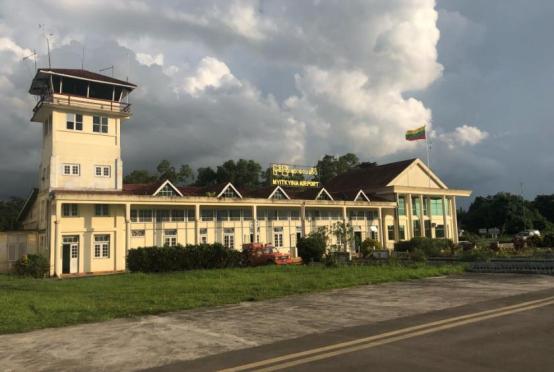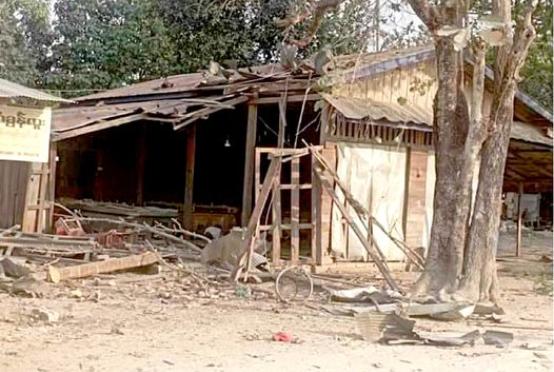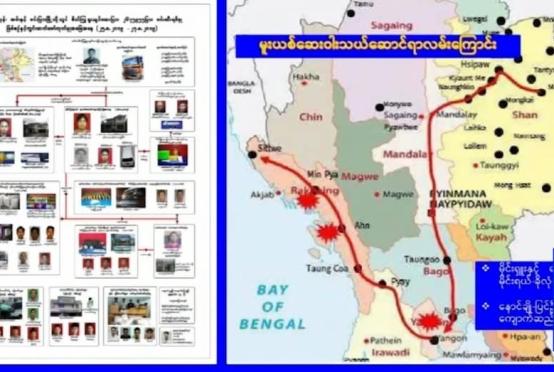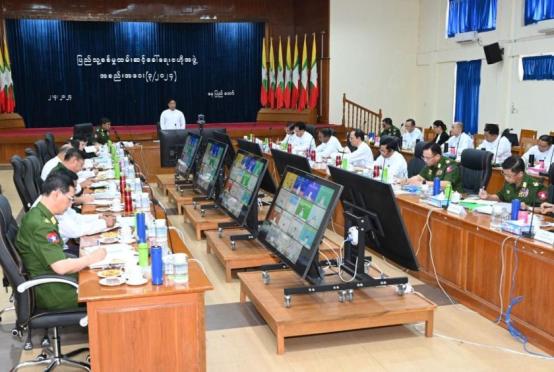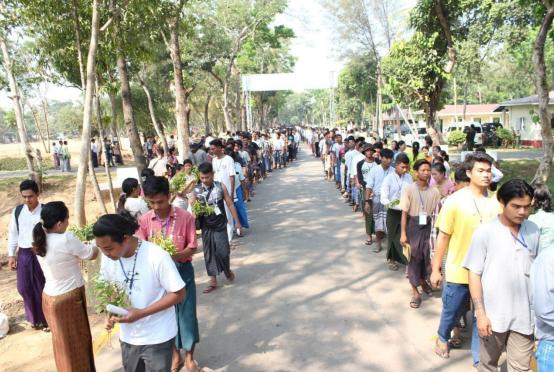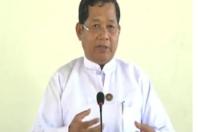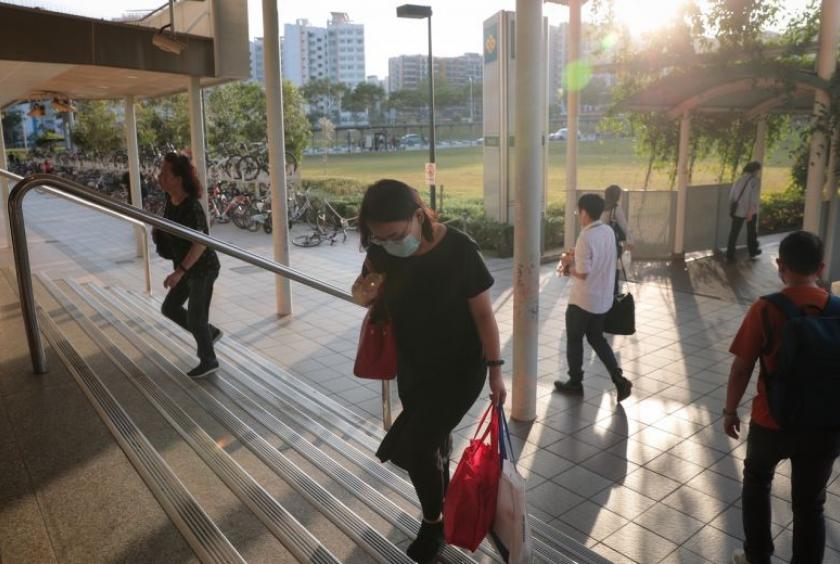
SINGAPORE(The Straits Times/ANN) - More than $6 billion has been set aside in the Budget to support businesses, workers, families and front-line agencies, as Singapore grapples with the economic fallout from the ongoing coronavirus outbreak.
Deputy Prime Minister Heng Swee Keat on Tuesday (Feb 18) announced various measures to stabilise the country's economy and cushion the impact of the outbreak, which has hit tourism arrivals and disrupted supply chains.
A $4 billion package will be rolled out to keep workers in jobs, help companies with their cash flow and provide additional support for sectors directly affected by the coronavirus disease, known as Covid-19.
Households will get additional help with cost of living from a special $1.6 billion "Care and Support Package", with those less well-off receiving more. This includes a one-off cash payout ranging from $100 to $300 for every Singaporean aged 21 and above.
Apart from this, $800 million will be set aside to support front-line agencies fighting the outbreak, taking the support kitty to $6.4 billion. The bulk of the funds for agencies will go to the Ministry of Health.
"Our immediate concern is to protect you and your families. We will put in every effort to slow down the spread of the virus," said Mr Heng, who is also Finance Minister.
Mr Heng noted that the coronavirus outbreak will certainly impact Singapore's economy, which is now much more integrated with China's.
Visitor arrivals to Singapore and air traffic through Changi have declined, along with hotel occupancy rates. Singapore had 77 confirmed coronavirus cases as of Monday.
The duration and severity of the Covid-19 outbreak and its impact on the global economy remain unclear, he said.
On Monday, the Trade and Industry Ministry downgraded its GDP forecast to between -0.5 per cent and 1.5 per cent.
While the ministry's baseline forecast is for GDP growth to come in at 0.5 per cent for the full year, Mr Heng said "we must be prepared that the economic impact may be worse than we projected".
To address near-term concerns, he said Singapore's Budget will be "more expansionary", with an expected deficit of $10.9 billion, or 2.1 per cent of GDP.
This exceeds the projected deficit of $8.7 billion in 2009 during the global financial crisis. But Mr Heng said the Government has accumulated sufficient surplus to fund this deficit without drawing on past reserves.
Ministries' total spending is forecast to rise 7 per cent from the 2019 financial year to $83.6 billion.
HELPING FAMILIES, BUSINESSES COPE WITH COVID-19
Mr Heng outlined two schemes that will help workers stay employed, by defraying wage costs for enterprises.
A jobs support scheme will offset 8 per cent of every employed local worker's wages for three months, capped at $3,600 a month, per worker.
This will benefit all companies, which will receive payment by July this year. This scheme will cost the Government $1.3 billion.
The ceiling for a separate scheme that co-funds wage increases for Singaporean employees will be raised from $4,000 to $5,000, to benefit more than 700,000 Singaporeans.
Companies will also receive a 25 per cent corporate income tax rebate, capped at $15,000 per company, and can take higher working capital loans to help with their cash flow.
Tenants and lessees of properties managed by government agencies such as the Housing Board, Singapore Land Authority and JTC can request more flexible rental payments like instalment plans.
Mr Heng said there will be additional support for the tourism, aviation, retail, food services and point-to-point transport sectors, which are directly affected by the outbreak.
Among other things, companies in the tourism sector will get property tax rebates and can apply for a temporary bridging loan programme that allows them to borrow up to $1 million with interest capped at 5 per cent.
Help for the aviation sector includes rebates on aircraft landing and parking charges, as well as rental rebates for shops and cargo agents at Changi Airport, he said.
The National Environment Agency will waive a month's rental for stallholders in hawker centres and markets that it manages. Other Government agencies like HDB will provide half a month of rental waiver to their commercial tenants.
"We will continue to monitor the situation closely. If needed, we can and are prepared to do more," Mr Heng said.
Elaborating on the $1.6 billion package for households, Mr Heng said it will also include a one-off GST voucher to all eligible HDB households, to help free up cash for other expenses.
The Service and Conservancy Charges Rebate will be extended by another year, while lower-income Singaporeans will get additional help in the form of a Workfare Special Payment and $100 in grocery vouchers for two years.
Among other help measures, every adult Singaporean with at least one Singaporean child aged 20 and below this year will receive a further $100 cash payout.
OTHER KEY INITIATIVES
During his two-hour-and-15-minute Budget speech, Mr Heng also outlined measures to grow the economy, transform enterprises and develop the workforce.
To encourage workers to upgrade their skills, the Government will make a one-off $500 top-up to the SkillsFuture account of every Singaporean aged 25 and above.
Mid-career workers aged 40 to 60 will receive an additional $500 top-up on top of this, to help them reskill.
The credit from both top-ups will expire in about five years, to nudge Singaporeans to make use of them.
More than 35,000 enterprises will also get $10,000 each in SkillsFuture Enterprise Credit to defray business transformation, job redesign and skills training costs.
On foreign workers, Mr Heng said S Passes - which allow mid-level skilled staff earning at least $2,400 a month to work here - should not be a means for enterprises to hire low-cost foreign workers when qualified locals are available.
He noted that the number of S Pass holders in the construction, manufacturing, marine shipyard and process sectors has grown by 3.8 per cent per year over the last two years.
However, this growth has to be sustainable, he said, announcing that the S-Pass sub-dependency ratio ceiling for the construction, marine shipyard and process sectors will be reduced from 20 per cent to 15 percent by Jan 1, 2023.
While the Government will leave the manufacturing sector alone for now, given prevailing economic uncertainties, Mr Heng served notice that a tightening of the ratio ceiling will take place when conditions allow.
He added that he will maintain foreign worker levy rates for all sectors for 2020.
The Deputy Prime Minister also set out three major challenges that Singapore has to confront - climate change, security and fiscal sustainability.
In line with tackling climate change, Mr Heng said Singapore's vision is to phase out internal combustion engine vehicles and have all vehicles on run on cleaner energy by 2040.
To do so, the Government will roll out an incentive scheme to promote cleaner light goods vehicles, and ramp up electric vehicle charging points in public carparks islandwide from 1,600 now to 28,000 by 2030.
Some $5 billion will be injected into a new Coastal and Flood Protection Fund as well.
Singapore can succeed in meeting the complex challenges ahead only if the country works together, he said.
To that end, he will set aside $250 million to top up a fund that provides support for ground-up efforts in the social domain.
Citing how nearly $4.3 million has been committed under the Our Singapore Fund to support more than 240 ground-up projects, Mr Heng said: "Through these partnerships, we have been able to do more and do better. And we are committed to make partnerships an integral part of how we will build our future Singapore."
Pointing to deep structural shifts taking place in the world today, coupled with near-term concerns over economic uncertainties and the coronavirus outbreak, Mr Heng said all countries will have to devise strategies and mobilise their people to navigate these changes.
"I am confident that together, we can ensure that Singapore remains exceptional," he said.
"Our nation has built up the capital - financial, human and social - to go the distance. The Singapore spirit is strong and growing. Together, we will advance, as One Singapore."

